"I had no melody so I only sang the lines I'd written for four or five bars at a time": The making of David Bowie's Heroes and why Robert Fripp should get some credit five decades on
He might have been making it up as he went along, but this 46-year-old masterpiece has become Bowie's most iconic recording
David Bowie's "Heroes" was recorded at Hansa Tonstudio in Autumn 1977 and went on to be the central component of his Berlin Trilogy of records recorded there. The title track has become Bowie’s most celebrated track and arguably the one that will be his legacy for many decades to come.
It and the "Heroes" album must also be responsible for putting Hansa Tonstudio on the map. And had it not been recorded at the Berlin facility, it’s doubtful whether Depeche Mode and U2 would have made the pilgrimage to record some of their best works.
Heroes the album has many brilliant moments including V-2 Schneider, a tribute to Kraftwerk’s Florian Schneider, complete with Kraftwerk-style repetitive vocoded vocals (actually processed using phasing) – and the song would later become the b-side to the "Heroes" single.
There was a lot of enthusiasm on "Heroes" because Brian [Eno] and I liked so much of what we'd done on Low
But it's the a-side that we simply have to focus on here, as it contains some of the most interesting recording techniques. It was produced by Bowie and Tony Visconti and written by Bowie and Brian Eno (and technically Robert Fripp, but more on this later).
"There was a lot of enthusiasm on "Heroes" because Brian [Eno] and I liked so much of what we'd done on Low," Bowie told CBC in 1977 about the choice to record another album. "We knew we had it in us to do another one."
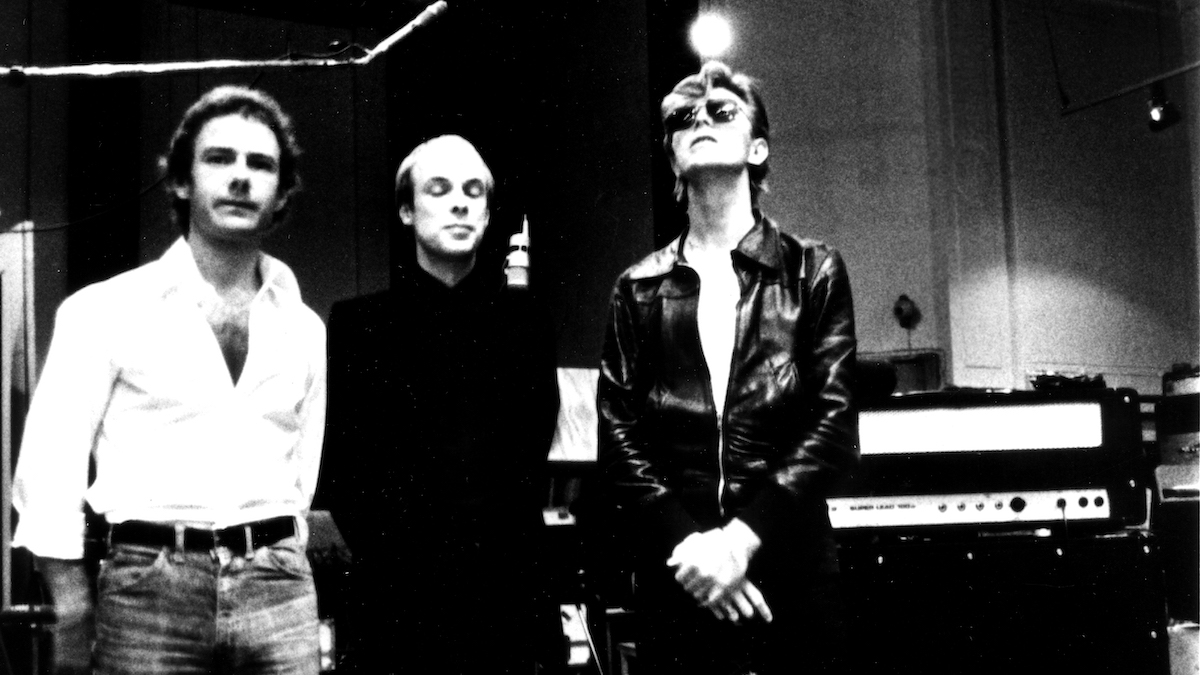
And the studio they chose to record it in had to be Hansa Tonstudio in Berlin, a facility that Bowie loved to record in, but not for any technical reasons, more geographical and geopolitical.
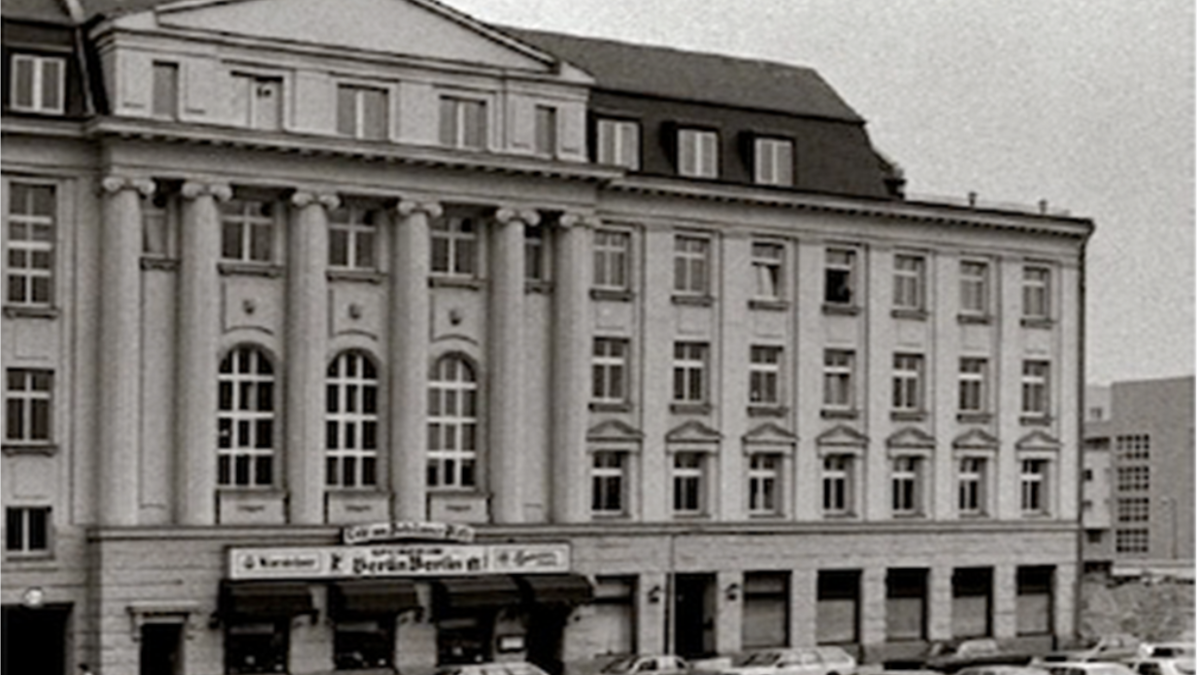
So you record looking at the turret and it provides a bit of friction, the kind of friction I need.
David Bowie
When asked 'why Hansa?' by TV show Pop Parade in 1977, he replied: "Well it's about 30 or 40 metres away from the [Berlin] wall and there's a turret on the top. So you record looking at the turret and it provides a bit of friction, the kind of friction I need. It's not a comfortable place to record. You feel it [outside tension] coming in so you develop very strong empathies with the people you are working with. Like a security blanket."
Want all the hottest music and gear news, reviews, deals, features and more, direct to your inbox? Sign up here.

Bowie and Brian Eno had already assembled a backing track for the recording with Bowie playing piano, and regular players Carlos Alomar on guitar, Dennis Davis on drums and George Murray on bass.
I never knew the complete melody until I'd finished the song and played the whole thing back
David Bowie
The backing was based around a G-D chord progression but Bowie had little else when the vocal recording started, telling The Observer in 1977, "I had no melody so I only sang the lines I'd written for four or five bars at a time. Having sung one line, I'd take a breath and do the same thing again and so on to the end. I never knew the complete melody until I'd finished the song and played the whole thing back."
And as for the lyrics and title, there are varying accounts on how they came about.

Bowie gave an extended version of the story behind the lyrics to Pop Parade and NME when promoting the "Heroes" album in 1977, explaining that while recording the song he would look out of the window at Hansa every lunchtime.
They gave their affair credibility by regarding it as an act of heroism so the song evolved out of that
David Bowie
"Every day between about 12 o clock and 1 o clock," he explained, "a boy and a girl would meet under the wall, under the guard, under the gun, on a park bench. And they would meet there, eat their sandwiches and kiss.
"They were having some kind of affair and this went on during the whole recording every day. It struck me as ironic that of all the hundreds of places they could have met, they met under the wall, so I presumed that they felt guilty about their affair. But I guessed that they gave their affair credibility by regarding it as an act of heroism so the song evolved out of that. It's a very pretty love song."
It's also not quite a true story.
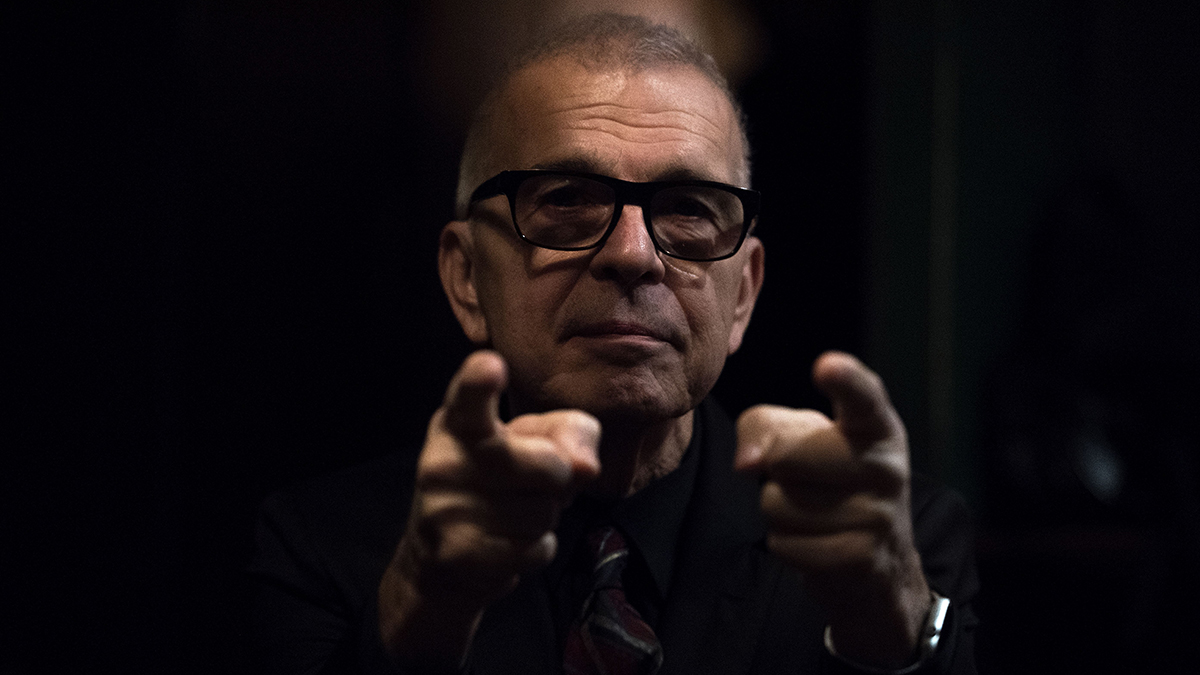
The two people that Bowie had seen getting friendly were actually Tony Visconti and German singer Antonia Maass. As Visconti was married, Bowie decided that when being interviewed about the record, to use another story to spare everyone's blushes. Whatever and whoever, Bowie got some amazing lyrics out of it.
As to the recording of these, Tony Visconti detailed the incredibly intricate recording process in an interview in Home & Studio Recording from 1985, and it would utilise the full size of Hansa's huge studio room.
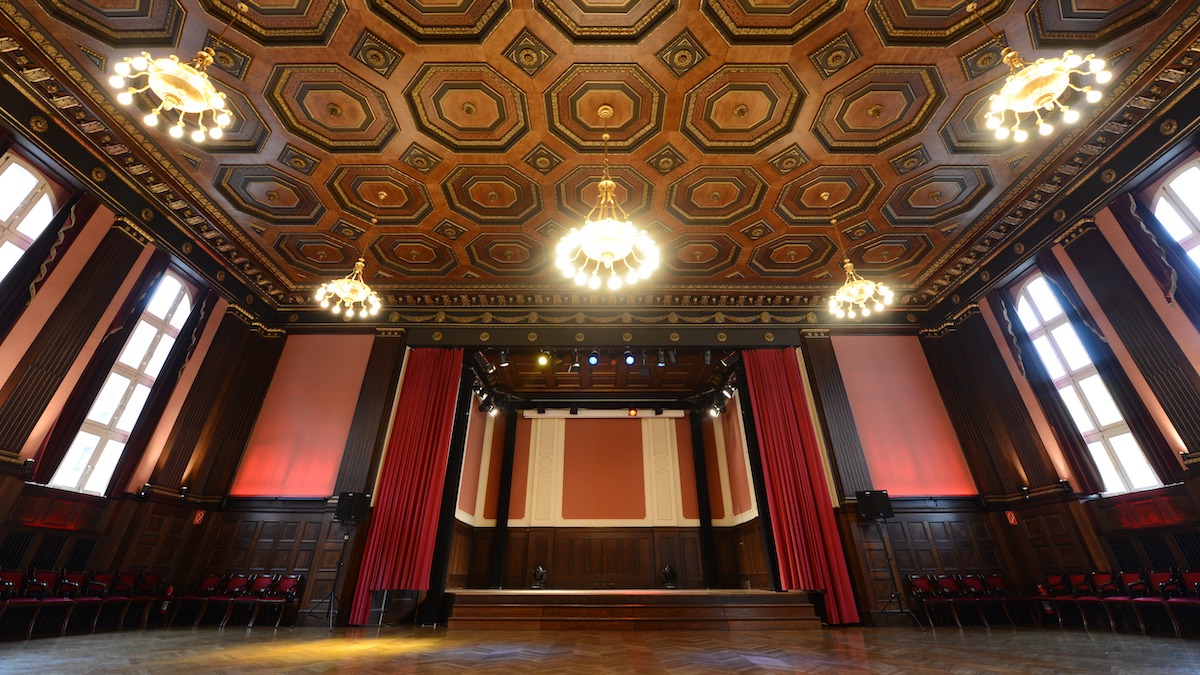
“Another technique that we used on "Heroes" came about because David has a very wide vocal dynamic range," Visconti explained.
This gave us a sound that really opened up as it got louder.
Tony Visconti
"So we set up three mics at different distances; one close up, one about 20 feet away and one right at the back of the auditorium. I had the two back mics on gates so that as the vocals got too loud for the first mic, the second one would open up and eventually the third.
"We compressed the close mic so that it wouldn't distort on the loud passages and then adjusted the balance between the mics manually on mixdown. This gave us a sound that really opened up as it got louder. We'd also use the gated room sound on drums and that was a long time before it became popular. If you trigger the room sound from the snare, it gives you the ambience just when you need it and prevents the sound from becoming too swimmy.”
Meanwhile the Fripp and Eno combination also playing on the track gives us the final chapter of the story and introduces us to the debate that still surrounds the writing of "Heroes".
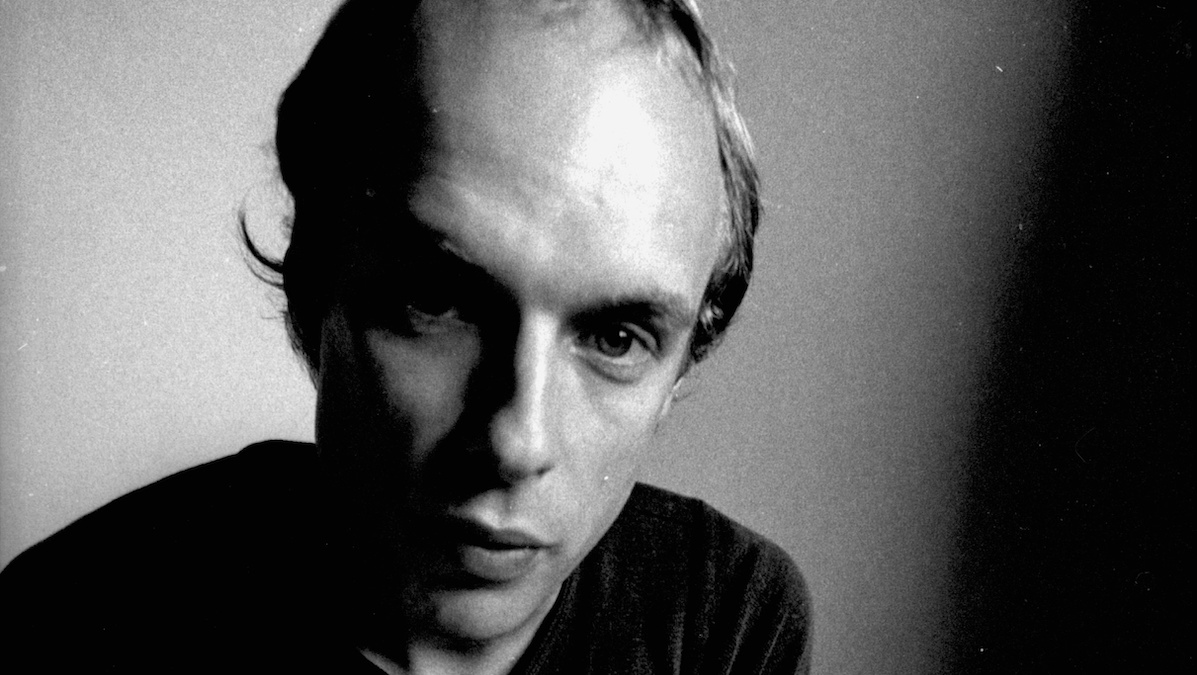
Brian Eno detailed how important Fripp’s input on the track was in a 1994 interview with The Mix where he talked about him and Fripp linking up Eno’s EMS Synthi AKS suitcase synth and Fripp’s guitar for "Heroes".
So not everything you hear originates from me…
Brian Eno on recording with Robert Fripp
"I was sending the guitar to a ring modulator and doubling the frequency of it, pulsing it, filtering it, and all those kinds of things. Fripp himself is very sonically aware, so not everything you hear originates from me, but he would plug into my little synthesiser and I would play around with his sound.”
Perhaps the phrase ‘not everything originates from me’ proves Fripp’s artistic contribution, but he is still frustratingly not given a writing credit for the track.
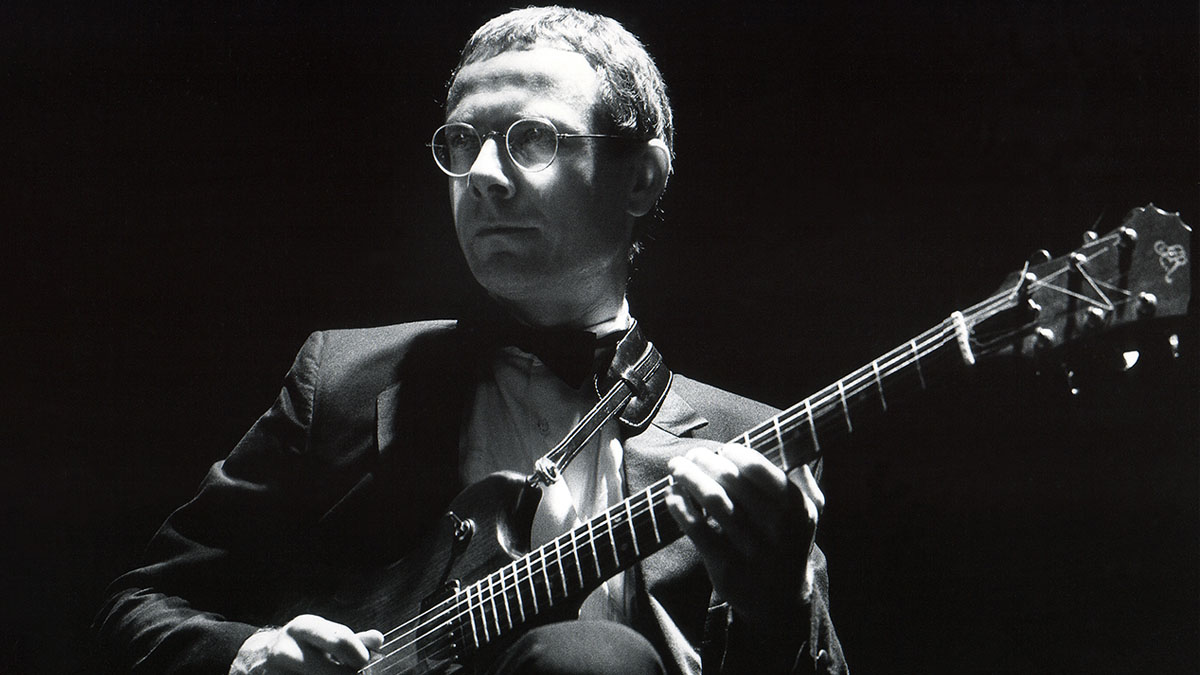
In 2019 Fripp revealed his ongoing frustration at not having a credit on this track and other Bowie works, with a Facebook statement revealing that everyone involved believed he should have.
“This accreditation as a Featured Player is supported by Brian Eno, Tony Visconti, David Bowie himself and the court of Public Opinion over four decades.”
This accreditation as a Featured Player is supported by Brian Eno, Tony Visconti, David Bowie himself
Robert Fripp
He adds: “Essentially, the David Bowie Estate argues that Robert Fripp’s Featured Performer Status is not acknowledged by PPL rules; and PPL argues that as the DB Estate does not accept RF as a Featured Performer, RF is therefore not a Featured Player."
So the current situation appears that Fripp needs to be given that status before the Phonographic Performance Limited (PPL) music licensing company can recognise him and that the accreditation required is down to the Bowie estate.
It's a pretty ridiculous, bureaucratic end to our story. Bowie's "Heroes" is the late singer's finest work and everyone who worked on it – his team that acted like a "comfort blanket" – should, of course, get credit for one of the best songs ever recorded.


Andy has been writing about music production and technology for 30 years having started out on Music Technology magazine back in 1992. He has edited the magazines Future Music, Keyboard Review, MusicTech and Computer Music, which he helped launch back in 1998. He owns way too many synthesizers.
